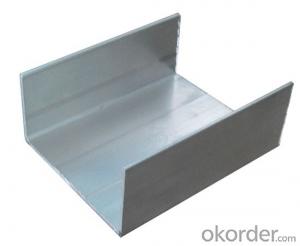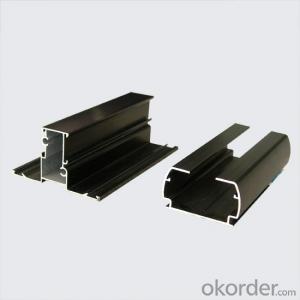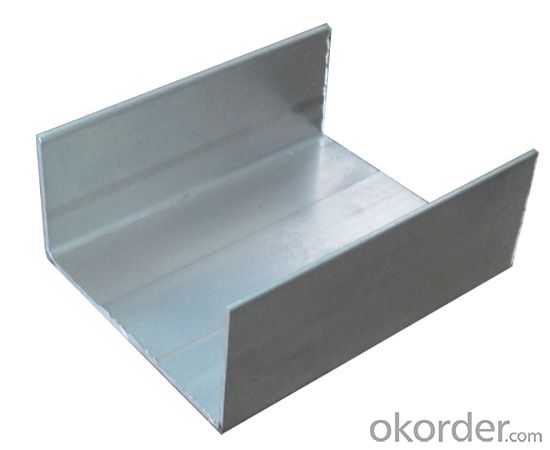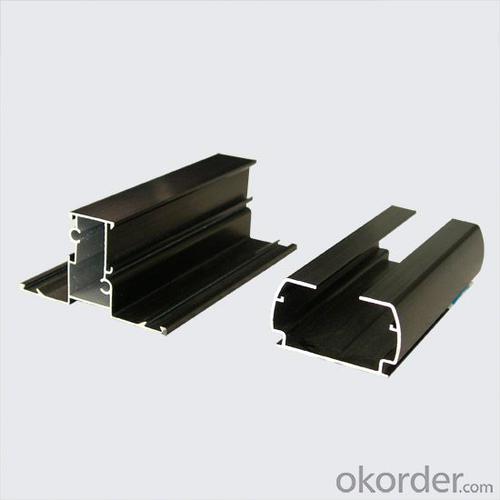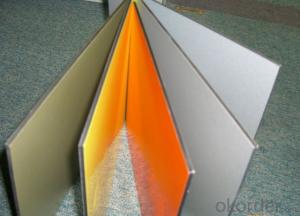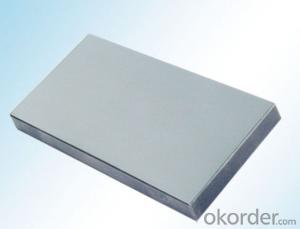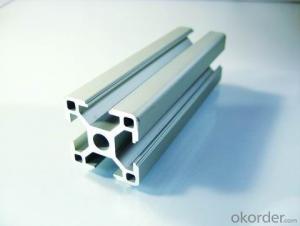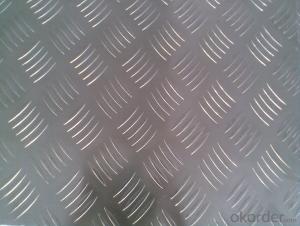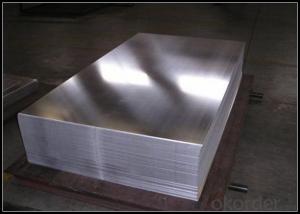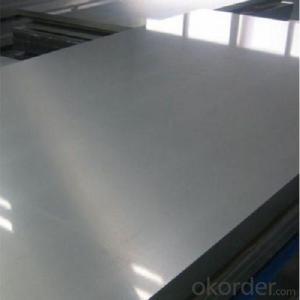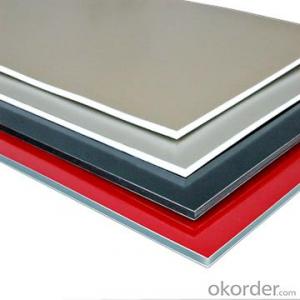T5 White Powder Coating Aluminum Sheets for Sale 4x8
- Loading Port:
- Shanghai
- Payment Terms:
- TT OR LC
- Min Order Qty:
- 20 m.t.
- Supply Capability:
- 2000 m.t./month
OKorder Service Pledge
OKorder Financial Service
You Might Also Like
1.Structure of T5 White Powder Coating Aluminium Profile Description:
Aluminium profiles are widely used in the field of construction and the manufacturing industry. T5 means bend 5, we can use in the doors and windows. And for the techinical of caoating, we adopt the popular coating technical, which is more durable. And the colour we use the white to be more matching with the windows and doors.
2.Main Features of the Aluminum Alloy Wheel Hub:
1, Light weight
2, High manufacturing accuracy
3, High strength
4, Small inertia resistance
5, Strong heat dissipation ability
6, Good visual effect
3.T5 White Powder Coating Aluminium Profile Images:
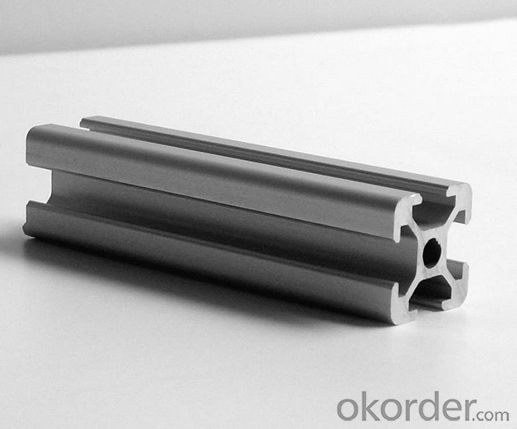
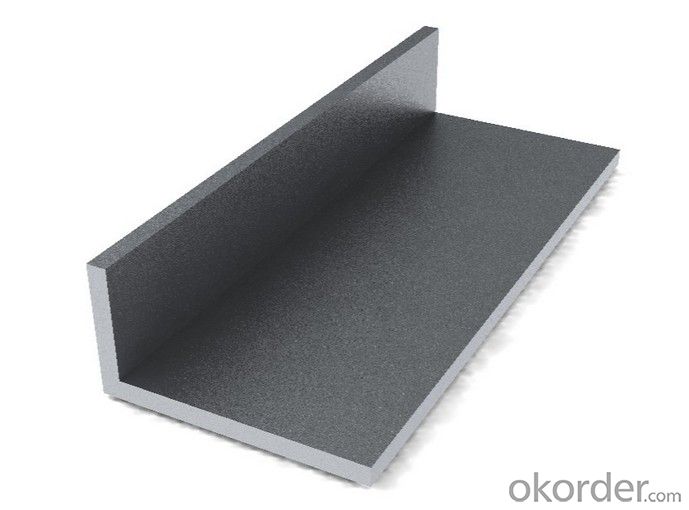
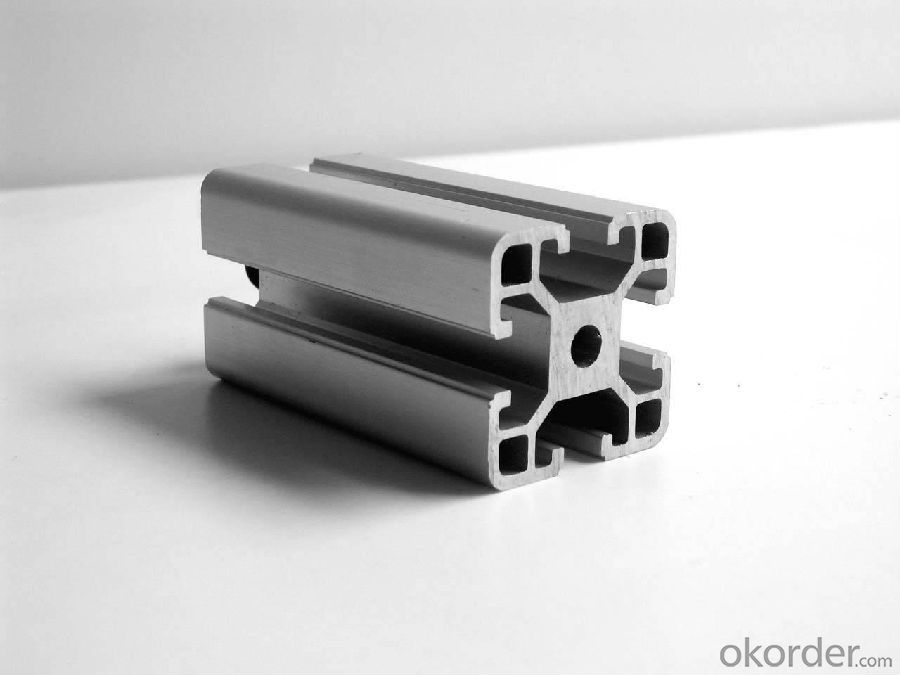
4.T5 White Powder Coating Aluminium Profile Description:
Aluminum alloy bars: ranging from 1000 series to 7000 series, normal material such as 6063,6005,6061,6060, special materials such as 6082, 7005, 7075 etc.
----General aluminum profiles (various shapes of pipes/tubes, angles, T or U shapes etc.)
--- Industrial aluminium profiles ( TV frames, Rim for bicycles and motorcycles, Heat sink profiles, Furniture, Ladder, Guide Rail, Leisure materials, Shower Room, Solar Module Frame, Motor Shell, Pipeline Integration etc.)
----Construction aluminium profiles ( Aluminum doors&windows, JB8A8, JB828 and JB828 Sliding Windows, JB50A Door Window, Curtain Wall Frame etc.)
5.FAQ:
①How about your company?
A world class manufacturer & supplier of castings forging in carbon steel and alloy steel,is one of the large-scale professional investment casting production bases in China,consisting of both casting foundry forging and machining factory. Annually more than 8000 tons Precision casting and forging parts are exported to markets in Europe,America and Japan. OEM casting and forging service available according to customer’s requirements.
②How to guarantee the quality of the products?
We have established the international advanced quality management system,every link from raw material to final product we have strict quality test;We resolutely put an end to unqualified products flowing into the market. At the same time, we will provide necessary follow-up service assurance.
- Q: Can aluminum sheets be used for industrial shelving?
- Certainly, industrial shelving can indeed make use of aluminum sheets. Aluminum, being a material that is lightweight and durable, offers numerous benefits for industrial shelving applications. It possesses resistance against corrosion, making it suitable for environments that face exposure to moisture or harsh chemicals. Moreover, the strength-to-weight ratio of aluminum proves advantageous, enabling the creation of robust shelves capable of supporting heavy loads while remaining relatively light in weight. Furthermore, aluminum is low-maintenance as it does not necessitate painting or sealing like other metals. Consequently, aluminum sheets are an incredibly practical option for industrial shelving due to their durability, resistance to corrosion, and lightweight characteristics.
- Q: Are aluminum sheets suitable for electrical connectors?
- Yes, aluminum sheets are suitable for electrical connectors. Aluminum is a highly conductive metal, which makes it an excellent choice for transferring electric current. It has a low electrical resistance, allowing for efficient transmission of electricity. Additionally, aluminum is lightweight, corrosion-resistant, and cost-effective, making it a popular material for electrical connectors in various industries such as automotive, aerospace, and electronics. However, it is important to note that aluminum connectors may require additional measures to prevent galvanic corrosion when used with dissimilar metals.
- Q: Are aluminum sheets suitable for outdoor use?
- Yes, aluminum sheets are suitable for outdoor use. Aluminum is a durable and corrosion-resistant material that can withstand various weather conditions, making it ideal for outdoor applications.
- Q: What types of aluminum sheets are recommended for outdoor applications?
- <p>Yes, there are specific types of aluminum sheets suitable for exterior use. These include aluminum sheets with a protective coating, such as anodized aluminum, which offers enhanced resistance to corrosion and weathering. Additionally, aluminum sheets with a Kynar 500庐 PVDF coating are highly resistant to UV rays, making them ideal for exterior applications. Marine-grade aluminum is also recommended for exterior use due to its superior corrosion resistance, especially in coastal areas. These types of aluminum sheets are designed to withstand harsh outdoor conditions and maintain their integrity over time.</p>
- Q: Which kind of solution should I use while welding aluminum sheet and copper pipe by tin soldering?
- 1, you must use over 350W soldering iron, 2,prepare some borax and tin soldering paster, you can’t use rosin to weld it, 3, polish the pipe to clean with fine abrasive paper and borax, 4, put the pipe and sheet into borax, use the soldering trip to rub on the weldment with some borax. 5, after the pipe and sheet become hot, use the soldering iron with the paster and tin to rub the pipe and sheet in borax, then it can be welded. 6, they can be welded together after welding.
- Q: What are the various types of insulation materials that can be combined with aluminum sheets for thermal or acoustic insulation purposes?
- <p>There are several types of insulation that can be used in conjunction with aluminum sheets, including: 1. Polyurethane foam, which provides excellent thermal insulation and can be bonded to aluminum sheets. 2. Mineral wool, a fire-resistant material that offers both thermal and acoustic insulation. 3. Polyisocyanurate, known for its high R-value and can be laminated to aluminum for added strength. 4. Extruded polystyrene, which is lightweight and provides good thermal resistance. 5. Fiberglass, a versatile insulation material that can be combined with aluminum for various applications. Each type has its specific properties and applications, making them suitable for different environments and insulation needs.</p>
- Q: Are the aluminum sheets suitable for architectural applications?
- Yes, aluminum sheets are suitable for architectural applications due to their lightweight, corrosion-resistant, and malleable properties. They can be easily formed into various shapes and sizes, making them ideal for constructing facades, roofs, and window frames in buildings. Additionally, aluminum sheets offer a modern aesthetic appeal and require minimal maintenance, making them a popular choice in the architectural industry.
- Q: How strong is aluminum per square inch, and at the same time how light is the aluminum per square inch?
- How strong aluminum is, depends on the specific alloy of aluminum, whether it is the aluminum 1000 series, or the 3000 series, or the 6000 series, or other variants. The 6000 series is most common for structural purposes. Do a search on its yield strength and its ultimate tensile strength, to get an idea of how strong your particular variant is. The alloy Aluminum 6061-T6 has a yield strength of 35000 lb/in^2, and an ultimate tensile strength of 42000 lb/in^2. This is for the case of pure tension with a uniform load. The square inches refers to its cross sectional area. The ultimate strength occurs at the point where it will completely rupture. The yield strength occurs at the point, where it still supports the load, but ceases to be reversible after the load is removed. Pure aluminum metal is much weaker than its alloys. It has a yield strength of about 1500 psi, and an ultimate strength of 10000 psi. For structural purposes, you almost always want to stay below the yield strength. How stiff aluminum is, is common among all alloys, as 10000000 psi. That is to say 10 million pounds of tension on an aluminum member with a cross sectional area of 1 inch, would hypothetically cause an increase equal to 1 length, if it were still in-tact and linear-elastic at that amount of stress. It isn't. A more realistic case, would be that 10000 pounds of tension on this member, would cause an 0.1% increase in length. As for how light aluminum is per square inch, that depends upon how long your rod is. A 3 ft rod weighs 3 times as much per square inch as does a 1 ft rod. The weight of a material is measured PER UNIT VOLUME rather than per unit area. Unless you are talking about a standard thickness. Aluminum 6061 alloys have a density of 0.0975 pounds/cubic inch. Pure aluminum has a this density as well, as do most of its alloys.
- Q: I just bought a cheap brand of pop tarts. One of the listed ingredients under Leavening is, sodium aluminum. I don't think Wal-Mart will take back the box, so should I just throw the whole box of 16, away. Or is the proportion of aluminum in the product so minute, that it will not make a difference to my health? Thanks.
- It's actually Sodium Aluminum Phosphate. It's used as a preservative in a lot of food actually. It's not exactly good for you, but it's really no more harmful than any other preservative. So basically, it's unhealthy, but you're not gonna die from eating them. EDIT: Yes I realize that Aluminum has been linked to Alzheimer's disease, but this isn't Aluminum. Aluminum is an element. This is Sodium Aluminum Phosphate. A completely different substance. When an element bonds with another element (or two) often its properties completely change. I think you'd be surprised to learn that Sodium by itself, is not only horribly volatile (it will explode in water) and will kill you if you ingested it. Iodine is also poisonous in fairly moderate doses. But when the two are bonded together (sodium iodide) it becomes an essential nutrient to the body.
- Q: So I want to solder aluminum cans together for this project I have. What tools will I need?
- a soldering iron or gun. use a low melting solder. it comes in various grades. go to Menard's or Home Depot they have it.
Send your message to us
T5 White Powder Coating Aluminum Sheets for Sale 4x8
- Loading Port:
- Shanghai
- Payment Terms:
- TT OR LC
- Min Order Qty:
- 20 m.t.
- Supply Capability:
- 2000 m.t./month
OKorder Service Pledge
OKorder Financial Service
Similar products
Hot products
Hot Searches
Related keywords
